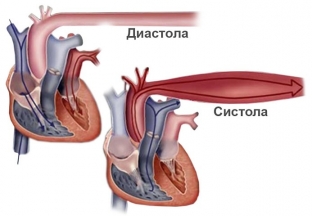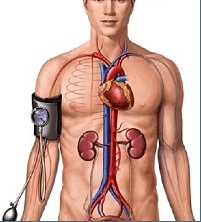The problem of arterial hypertension today has affected a huge percentage of the world's population. Factors such as junk food, smoking, adverse environmental influences and heredity play a huge role in the development of this disease.
Unfortunately, very few people, in particular in our country, do not understand that blood pressure control should be constant, and the option "take a pill when it's bad" can lead to serious irreversible consequences, such as the occurrence of a hypertensive crisis.
What is the danger of this condition, and what symptoms of a hypertensive crisis will help to recognize it – tells estet-portal.com.
What is a hypertensive crisis: blood pressure limits
A hypertensive crisis is a sudden significant increase in blood pressure, which may result in damage to target organs with the appearance of characteristic symptoms. The target organs are the heart, brain, kidneys, eyes and blood vessels of the body.
The transition of arterial hypertension to a state of hypertensive crisis occurs with an increase in systolic blood pressure above 240 mm Hg, and diastolic blood pressure – over 140 mmHg, but these limits are relative.

Classification of hypertensive crises: complicated and uncomplicated
All hypertensive crises are divided into two types: complicated and uncomplicated. In an uncomplicated hypertensive crisis, target organ damage does not occur, diastolic blood pressure usually does not exceed 120 mm Hg, the patient does not require urgent hospitalization, but needs emergency medical care. Uncomplicated hypertensive crises are divided into:
- cerebral uncomplicated crisis;
- hypothalamic paroxysm;
- cardiac uncomplicated crisis;
- significant increase in blood pressure in the early postoperative period.
In a complicated hypertensive crisis, acute or progressive damage to target organs occurs, diastolic blood pressure is above 120 mm Hg, there is a direct threat to the patient's life. It is necessary to urgently hospitalize the patient and provide emergency medical care.
Complicated hypertensive crises may have the following complications:
- myocardial infarction;
- stroke;
- acute dissecting aortic aneurysm;
- unstable angina;
- transient ischemic attack;
- arrhythmias;
- acute hypertensive encephalopathy;
- bleeding;
- acute renal failure;
- eclampsia.
What symptoms of a hypertensive crisis indicate target organ damage
In an uncomplicated hypertensive crisis, general symptoms such as dizziness, weakness, lethargy, and headache may occur. Often, an uncomplicated hypertensive crisis does not give a characteristic clinical picture and this is of particular danger. An important preventive measure for a hypertensive crisis is the constant monitoring of blood pressure, especially with a sharp change in weather conditions, after exercise, and so on.
 The characteristic symptoms of a hypertensive crisis occur when its course is complicated, and appear depending on which target organs are affected:
The characteristic symptoms of a hypertensive crisis occur when its course is complicated, and appear depending on which target organs are affected:
- when the brain is damaged, acute hypertensive encephalopathy occurs and its symptoms such as headache, nausea and / or vomiting, convulsive syndrome, visual disturbances, transient ischemic attack, confusion, drowsiness, complete loss of consciousness appear;
- if the heart is affected: the occurrence of shortness of breath or suffocation may indicate acute left ventricular failure, provoking pulmonary edema, and pain behind the sternum indicates myocardial infarction;
- when the kidneys are damaged, acute renal failure occurs, the symptoms of which are delay or complete absence of urination;
- with vascular lesions: the occurrence of nosebleeds is associated with rupture of small arteries, and very pronounced intense pain in the chest will suggest an aortic dissection;
- eye involvement is manifested by visible hemorrhage or retinal edema.
Knowing the symptoms of a hypertensive crisis will save your life
Patients suffering from arterial hypertension should always be aware of the possibility of a hypertensive crisis, and try to prevent the occurrence of this condition and its complications. Acute cerebrovascular accident or stroke is one of the most dangerous complications of a hypertensive crisis, while its symptoms, such as headache, tinnitus, impaired consciousness, and others can occur LONG before the onset of the stroke itself, which means that a catastrophe can be prevented.
Constant monitoring of blood pressure, correction of hypertension with medications and timely seeking medical help when the first symptoms of a hypertensive crisis occur will help not only prevent complications, but keep you a full healthy life!







Add a comment